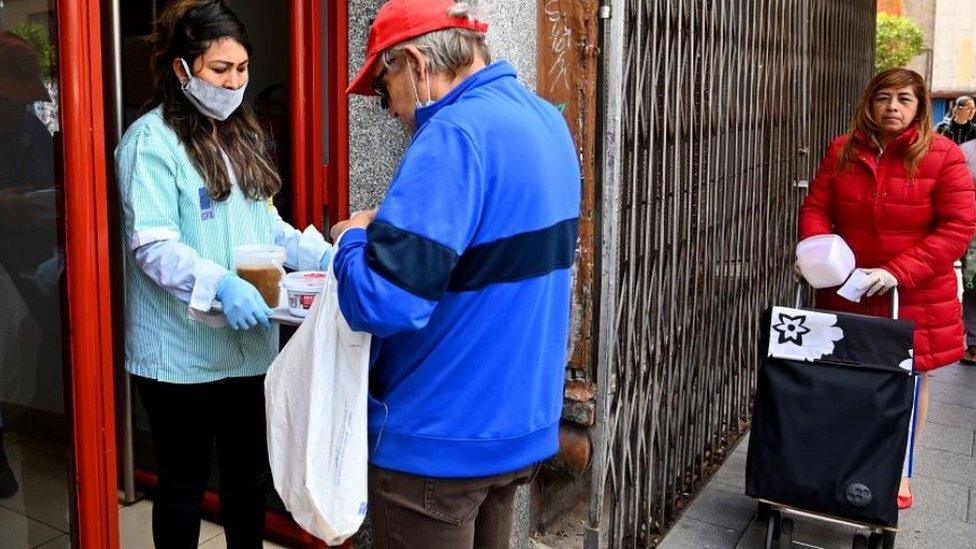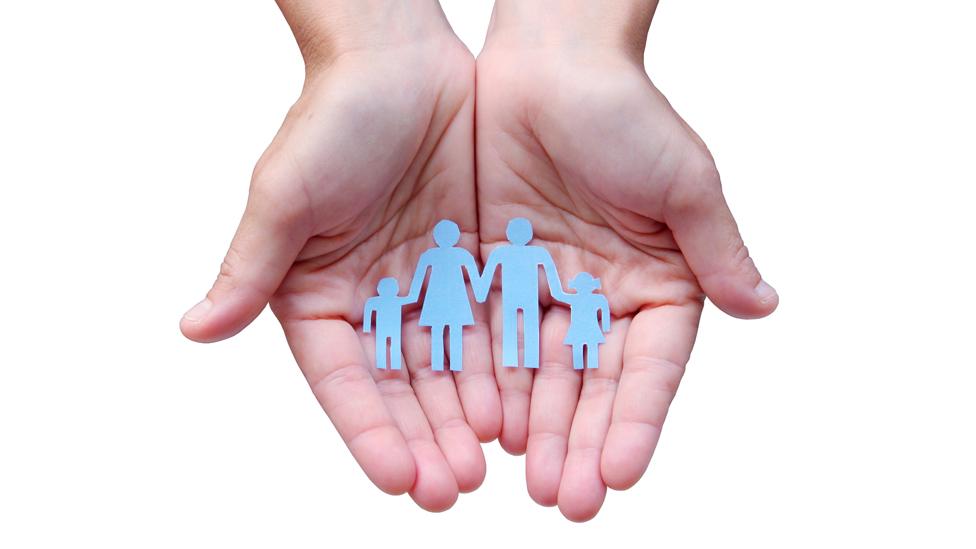Coronavirus: Spain set for basic income to ease crisis pain
- Published

A free food collection point in Madrid to ease hardship
Spain's Socialist-led government plans to launch a monthly basic income scheme for the most vulnerable households hit by the coronavirus crisis.
The plan is expected to be approved next Tuesday and will aim to reach at least 100,000 households initially.
Each adult under the scheme will get a monthly payment of at least €462 (£410; $500). That may be topped up by other benefits, depending on need.
Finland has trialled basic income and Italy has a scheme tied to re-skilling.
However, neither the Finnish experiment - now ended - nor Italy's "citizens' income" scheme, introduced last year, made much impact on the unemployment rate.
The Spanish scheme will prioritise families, including single-parent households.
The plan is to scale it up later to reach about a million homes.
Social Security Minister Jose Luis Escrivá said it would act as "a permanent safety net for the most vulnerable".
The scheme will cost the government between €3bn and €3.5bn annually, he said.
Spain is among the European countries hit hardest by the pandemic, but on Sunday its daily death toll fell below 100 for the first time in two months.
Italy's income scheme requires recipients - people with very low income and savings - to retrain, as Italy's unemployment rate is among the highest in the EU. It was 8.4% in March, and the economic paralysis under lockdown is expected to push it higher.

EUROPE'S EASING: How countries are lifting lockdown
THE R NUMBER: What it means and why it matters
GLOBAL SPREAD: Tracking the pandemic
RECOVERY: How long does it take to get better?
A SIMPLE GUIDE: What are the symptoms?

- Published8 February 2019

- Published10 February 2018

- Published13 November 2017

- Published18 May 2020
